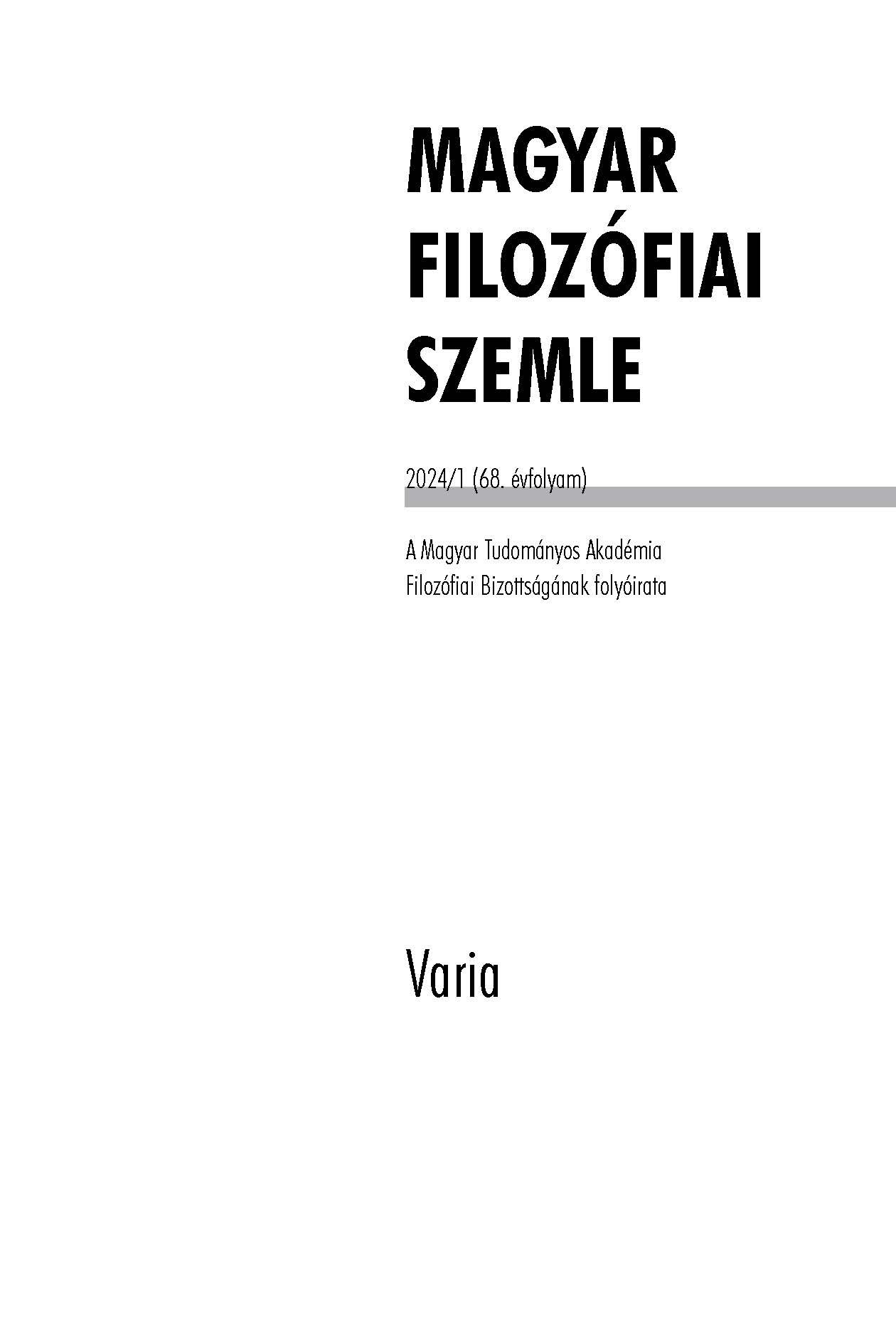Which Free Will Exists?
Abstract
This paper investigates the concept of free will by engaging with László Bernáth’s Létezik-e szabad akarat? [Is there Free Will?]. It introduces a methodological approach to clarify the conditions under which a person can act otherwise, emphasizing the necessity to specify the descriptive levels of reality being discussed. The study critiques Bernáth’s arguments, demonstrating that they better align with the empirical free will thesis rather than his original intent. It explores the implications of empirical free will for moral responsibility, arguing that accepting empirical free will resolves Bernáth’s epistemological challenges. The paper also addresses classical incompatibilist objections, showing they do not undermine empirical free will. Additionally, it examines the relationship between different determinism concepts and the potential for an empirically justified notion of free will. The conclusion considers the future of human freedom, positing that knowledge expansion could broaden rather than constrain empirical free will, despite potential technological threats.
References
Bernáth László 2023. Létezik-e szabad akarat? Budapest, Kalligram.
Bernáth László - Tőzsér János. 2016. Szabad akarat és ágens-okozás. Magyar Filozófiai Szemle. 60/2. 46-66.
Caruso, Gregg D. 2012. The Folk Psychology of Free Will: An Argument Against Compatibilism. Kriterion - Journal of Philosophy. 26. 56-89. DOI: https://doi.org/10.1515/krt-2012-012606
E. Szabó László 2004. A nyitott jövő problémája. Budapest, Typotex.
Earman, John 1986. A Primer on Determinism. Dordrecht, Springer. https://doi.org/10.1007/978-94-010-9072-8
Fazekas Péter - Gyenis Balázs - Kertész Gergely - Hofer-Szabó Gábor 2021. Okság: egy dinamikus rendszereken alapuló megközelítés. Magyar Filozófiai Szemle. 65/1. 26-45.
Gyarmathy Ákos. 2016. Frankfurt esetek és alternatívák: válasz a dilemmára. Magyar Filozófiai Szemle. 60/2. 26-45.
Fischborn, Marcelo 2016. Libet-style experiments, neuroscience, and libertarian free will. Philosophical Psychology. 29. 494-502. DOI: https://doi.org/10.1080/09515089.2016.1141399
Gyenis Balázs 2013. Determinizmus és interpretáció. Magyar Filozófiai Szemle. 56/2. 85-100.
Gyenis Balázs 2022. Elmélet-szuperveniencia fizikalizmus és a fizika jövőbeli változásai. Magyar Filozófiai Szemle. 66/3. 41-66.
Gyenis Balázs 2024. Fizikai, empirikus, és feltételes induktív lehetőség. Magyar Filozófiai Szemle (elbírálás alatt).
McKenna, Michael - Coates, D. Justin 2019. Compatibilism. In Edward N. Zalta (szerk.) The Stanford Encyclopedia of Philosophy. https://plato.stanford.edu/entries/compatibilism (2023.12.04.)
Nahmias, Eddy - Morris, Stephen G. - Nadelhoffer, Thomas - Turner, Jason 2006. Is Incompatibilism Intuitive? Philosophy and Phenomenological Research. 73/1. 28-53. DOI: https://doi.org/10.1111/j.1933-1592.2006.tb00603.x
List, Christian 2014. Free will, determinism, and the possibility of doing otherwise. Noûs. 48/1. 156-178. DOI: https://doi.org/10.1111/nous.12019
Norton, John 2022. How to Make Possibility Safe for Empiricists. In Yemima Ben-Menahem (szerk.) Rethinking the Concept of Laws of Nature: Natural order in the Light of Contemporary Science. Springer. 129-159. https://doi.org/10.1007/978-3-030-96775-8_5
O'Connor, Timothy - Franklin, Christopher 2022. Free Will. In Edward N. Zalta (szerk.) The Stanford Encyclopedia of Philosophy. https://plato.stanford.edu/entries/freewill (2023.12.04.)
Sripada, Chandra 2016. Free will and the construction of options. Philosophical Studies. 173. 2913-2933. DOI: https://doi.org/10.1007/s11098-016-0643-1
Turri, John 2017. Compatibilist and Incompatibilism in Social Cognition. Cognitive Science. 41. 403-424. DOI: https://doi.org/10.1111/cogs.12372
Ziegler Zsolt 2009. Morális felelősség és az alternatív lehetőségek elve - a Frankfurt-típusú példák. Elpis. 5/1. 123-147. https://doi.org/10.54310/Elpis.2009.2.6



